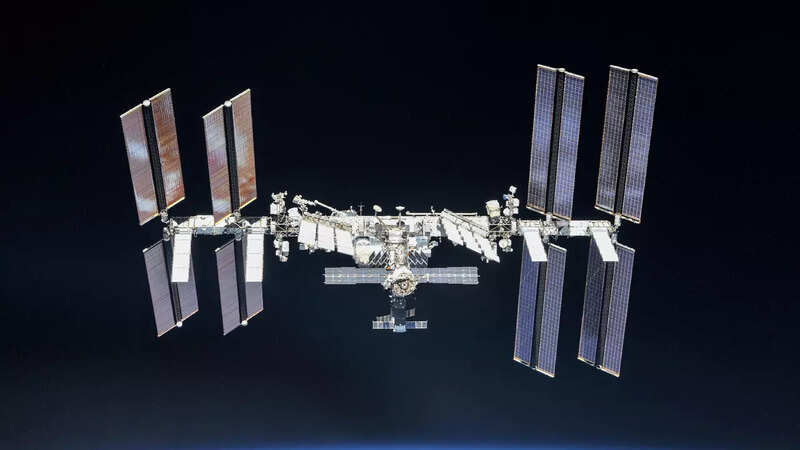The first private astronaut flight from a US-based firm will dock at the International Space Station.
The launch has been lauded by the business, NASA, and other industry players as a watershed moment in the next wave of commercial space initiatives known as the low-Earth orbit economy, or "LEO economy" to insiders.Weather allowing, Axiom's four-person crew will launch from NASA's Kennedy Space Center in Florida on Friday at the earliest, atop a Falcon 9 rocket provided and operated by Elon Musk's commercial space launch company SpaceX.
The launch was supposed to happen on Wednesday. Axiom did not provide a reason for the delay in a statement, although the business did say on its website that it was still working on pre-launch procedures. If everything goes according to plan, the quartet, commanded by retired NASA astronaut Michael Lopez-Alegria, will dock at the International Space Station (ISS) some 250 miles (400 kilometres) above Earth in about 28 hours.Lopez-Alegria, 63, is Axiom's vice president of business development and a Spanish-born mission commander. Larry Connor, an Ohio-based real estate and technology entrepreneur and aerobatics aviator, will serve as the mission's pilot. Connor is in his 70s, but the firm didn't say how old he is.
Eytan Stibbe, 64, an investor and former Israeli fighter pilot, and Mark Pathy, 52, a Canadian businessman and philanthropist, complete the Ax-1 crew as mission specialists. Stibbe will be the second Israeli in space, following Ilan Ramon, who died along with six NASA crewmates in the Columbia accident in 2003.Many of the rich tourists taking suborbital journeys recently aboard billionaires Jeff Bezos and Richard Branson's Blue Origin and Virgin Galactic services may appear to have a lot in common with the Ax-1 crew. Axiom executives, on the other hand, stated their purpose is more serious.
"We are not space tourists," Lopez-Alegria remarked during a recent press conference, stressing that the Axiom team has received significant astronaut training from both NASA and SpaceX and would conduct meaningful biomedical research.
'Many beginnings'
"It is the beginning of many beginnings for commercializing low-Earth orbit," Axiom's co-founder and executive chairman, Kam Ghaffarian, told Reuters in an interview. "We're like in the early days of the internet, and we haven't even imagined all the possibilities, all the capabilities, that we're going to be providing in space."
The so-called Ax-1 team will be carrying equipment and supplies for 26 science and technology experiments to be conducted before they are slated to leave orbit and return to Earth 10 days after launch. These include research on brain health, cardiac stem cells, cancer and aging as well as a technology demonstration to produce optics using the surface tension of fluids in microgravity, company executives said.
Launched to orbit in 1998, ISS has been continuously occupied since 2000 under a U.S.-Russian-led partnership including Canada, Japan and 11 European countries.
While the space station has hosted visits by civilian visitors from time to time, the Ax-1 mission will mark the first all-commercial team of astronauts to use ISS for its intended purpose as an orbiting laboratory.
They will be sharing the weightless work space alongside seven regular crew members of the ISS - three U.S. astronauts, a German astronaut and three Russian cosmonauts.
Axiom said it has contracted with SpaceX to fly three more missions to orbit over the next two years. NASA selected Axiom in 2020 to design and develop a new commercial wing to the space station, which currently spans the approximate size of a football field. Flight hardware for the first Axiom module is currently undergoing fabrication, the company said.
Plans call for eventually detaching the Axiom modules from the rest of the outpost when ISS is ready for retirement, around 2030, leaving the smaller Axiom station in orbit as a commercial-only platform, Ghaffarian said.
Other private operators are expected to place their own stations in orbit once ISS is decommissioned.
As Kathy Lueders, associate NASA administrator for space operations, described Axiom's role on a recent teleconference with reporters, "This is going to be an important partnership going forward."
( Details and picture courtesy from Source, the content is auto-generated from RSS feed.)
Join our official telegram channel for free latest updates and follow us on Google News here.



